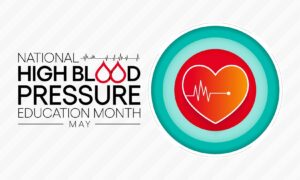5 Tips to Prevent and Manage High Blood Pressure
 May isn’t just about spring blooms and sunny days—it’s also a time to focus on something that affects millions of Americans: high blood pressure. As we commemorate High Blood Pressure Education Month, it’s important to understand more about this significant health issue.
May isn’t just about spring blooms and sunny days—it’s also a time to focus on something that affects millions of Americans: high blood pressure. As we commemorate High Blood Pressure Education Month, it’s important to understand more about this significant health issue.
At the Medical Group of New Jersey, we’re passionate about education and prevention, so let’s dive the impact of high blood pressure and how you can take control of your heart health with the help of a cardiologist doctor in New Jersey.
High blood pressure, also known as hypertension, often flies under the radar because it typically has no symptoms. But make no mistake—it’s a major risk factor for heart disease, stroke, and other serious conditions. That’s why understanding the importance of blood pressure education is key to maintaining a healthy heart.
So, what exactly is high blood pressure?
Simply put, it means your heart is working harder than it should to pump blood through your arteries. Over time, this extra strain can damage blood vessels and organs, setting the stage for heart attacks, strokes, kidney disease, and more. The good news is that high blood pressure is largely preventable and manageable with the right knowledge and lifestyle changes.
Here are five tips to help you keep your blood pressure in check:
- Know Your Numbers: Get familiar with your blood pressure readings and what they mean. A normal blood pressure reading is typically below 120/80 mmHg. If your numbers are consistently higher, it’s time to take action.
- Live a Heart-Healthy Lifestyle: Eat a balanced diet rich in fruits, vegetables, whole grains, and lean proteins. Limit salt, sugar, and processed foods, and watch your alcohol intake. Regular exercise is also fundamental—aim for at least 30 minutes of moderate activity most days of the week.
- Don’t Skip Check-Ups: Regular visits to your physician are important to monitor your blood pressure and overall heart health. Your doctor can work with you to develop a personalized plan to lower your blood pressure and reduce your risk of complications.
- Manage Stress: Stress can take a toll on your heart health, so find healthy ways to manage it . Practice relaxation techniques like deep breathing, meditation, or yoga, and make time for activities you enjoy.
- Quit Smoking: Smoking raises blood pressure and damages blood vessels, increasing your risk of heart disease and stroke. If you smoke, quitting is one of the best things you can do for your heart.
This High Blood Pressure Education Month, let’s commit to learning more about this silent killer and taking proactive steps to protect our heart health. With the right knowledge, support, and care from the Medical Group of New Jersey, we can keep our hearts strong and thriving for years to come.